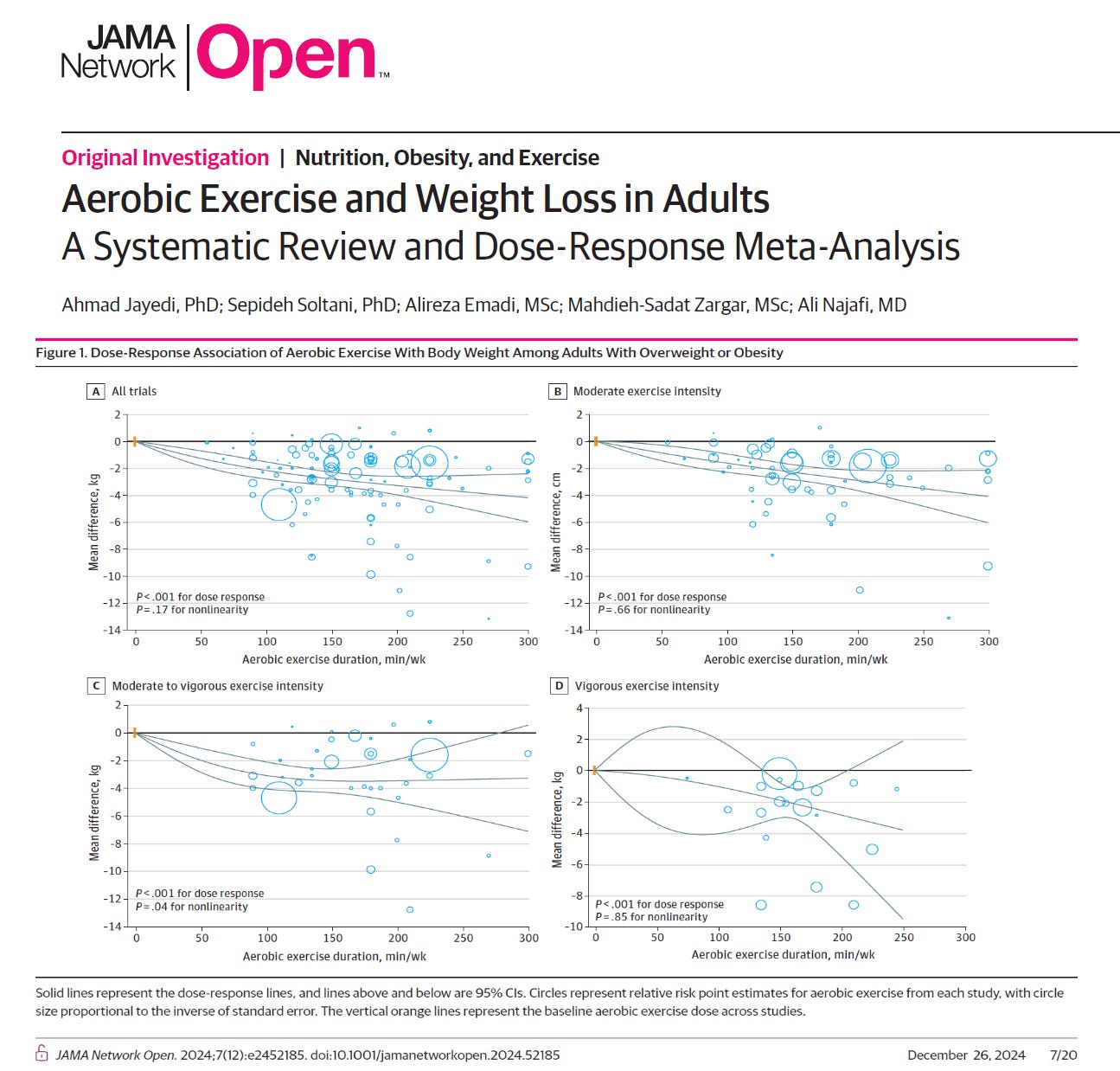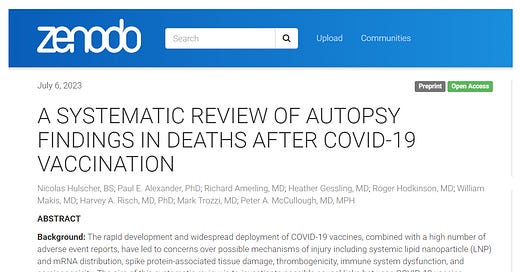
By Peter A. McCullough, MD, MPH
The history of New Year’s resolutions was recently summarized by Sarah Pruitt:
The ancient Babylonians are said to have been the first people to make New Year’s resolutions, some 4,000 years ago. They were also the first to hold recorded celebrations in honor of the new year—though for them the year began not in January but in mid-March, when the crops were planted.
Just in time for January 1, 2025, Jayedi et al performed a meta-analysis of randomized trials of aerobic exercise on the outcomes of weight loss.

In total, 116 randomized clinical trials involving 6880 participants (4199 [61%] female; mean [SD] age, 46 [13] years) with overweight or obesity were included. Each 30 minutes per week of aerobic exercise was associated with reduced body weight by 0.52 kg (95%CI, −0.61 to −0.44 kg.
The duration of the trials ran from 8 to 48 weeks. As you can see there are dose and intensity relationships that can be leveraged in a strategy combining healthy food choices, portion control, and exercise. No doubt, exercise is key to good sleep and maintenance of weight over time. These data should bolster New Year’s resolutions targeting improved fitness and weight loss for most heading into 2025.
Please subscribe to Courageous Discourse as a paying ($5 monthly) or founder member so we can continue to bring you the truth.
Peter A. McCullough, MD, MPH
President, McCullough Foundation
www.mcculloughfnd.org
















oh dear; banging on about exercise and weight loss; folks like Gary Taubes talked about that fluently 20 yrs ago: you do not burn off fat with exercise; our obesity comes surely from that terrible man Ancel Keys who made up the nonsense 70yrs ago that eating fat was the problem; the poor, poor isolated man; who had no real friends; could not talk to anyone; like a modern day preacher, he just raged and raged and lectured and lectured; he did not understand that eating carbs make lots of insulin; and with high insulin levels, you cannot burn fat that is stored on you; it is that simple
farmers feed carbs to cattle and pigs; as maize and corn; they know it fattens these animals; why would it be any different for humans
I have often stated that the "eat less and exercise more" diet is the most commonly failed diet, and these studies do not change my mind. I believe if you eat less and take an aspirin a day, eat less and watch more TV, eat less and take these magic pills I am selling, or eat less and have more sex will all induce weight loss. Unfortunately, so does eat less and have less sex results in weight loss.
These studies are all conflicted because they combine exercise and diet. How about you do not exercise any more than than what you do right now, but eat less. Do you think this would also result in weight loss?
This is supported by the new GLP-1 drugs. You will lose weight whether you exercise or not. You will also lose weight no matter what diet you are on, assuming it is not a completely crazy diet. The point is the drugs diminish hunger, which means you will eat less, and exercise has nothing to do with it. Almost all weight loss diets will fail unless you are able to decrease hunger.
I agree you can lose weight through exercise, but it requires a lot of exercise. I mean hours a week, say running 40 miles a week. Those who need to lose weight (that is are fat) are usually older (that is above age 50) and simply are unable to do enough exercise as a life style to be able to do this much exercise without eventually suffering injury. The ketogenic diet, fasting, and bariatric surgery (through inducing GLP-1 secretion) all diminish hunger and reduce fat, regardless of whether you exercise beyond the activities of normal living or not. No matter what weight loss diet you are on, when you lose the weight you must go on a different diet, not the one that made you fat to begin with.
I say this, but perhaps you can just stay on the GLP-1 diet the rest of you life, but I suspect that several years of GLP-1 comes with some long-term effects. Even then, if you lose weight on the GLp-1 drugs, and we then put you on an oral GLP-1 drug once a day, this may work. There are numerous drugs which we have decided to put you on for the rest of your life because the benefit is worth the risk, and oral GLP may be one of them.
Kelly Gregg MD Modern Weight Loss